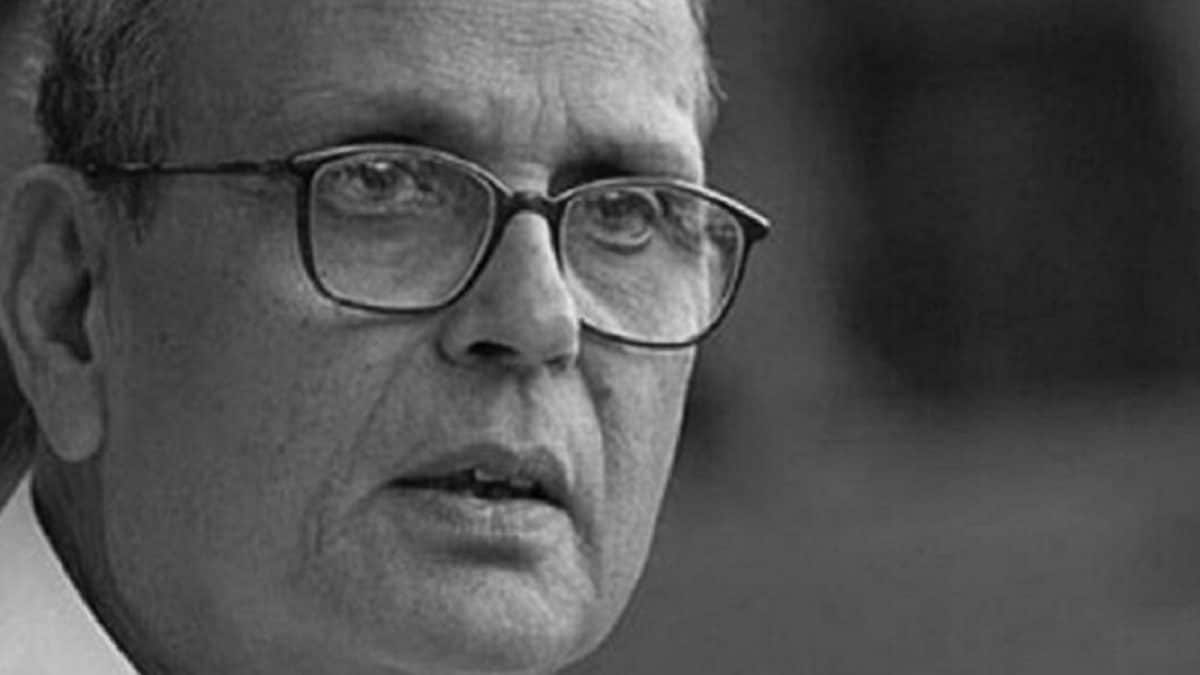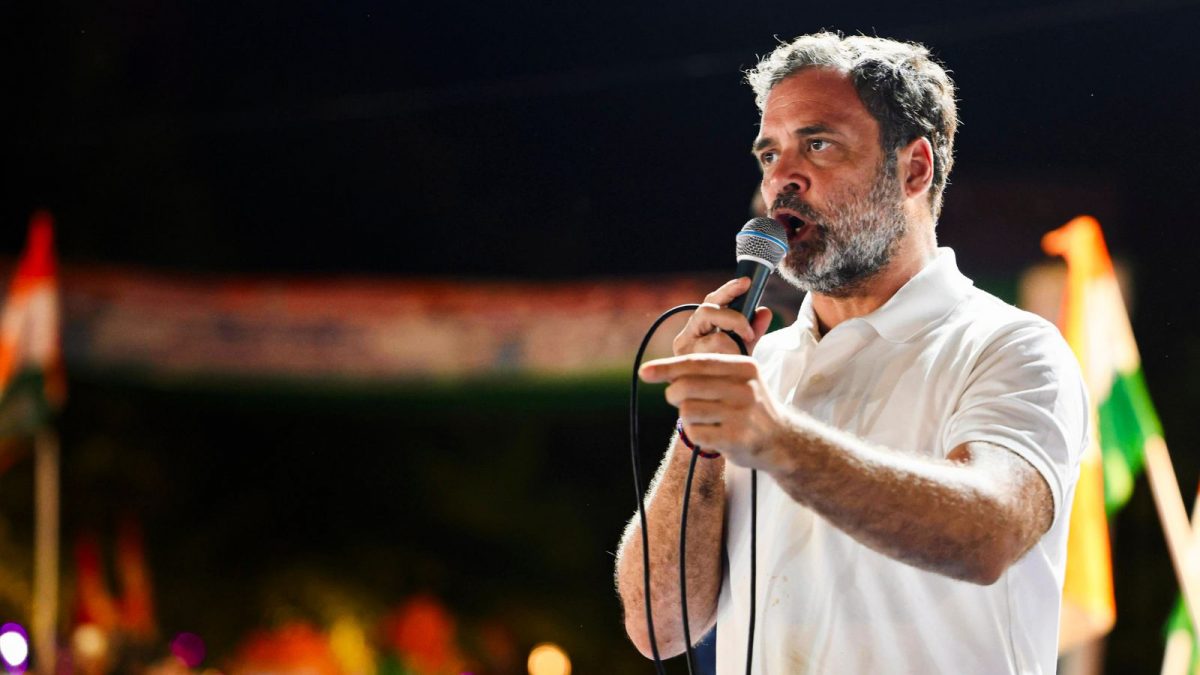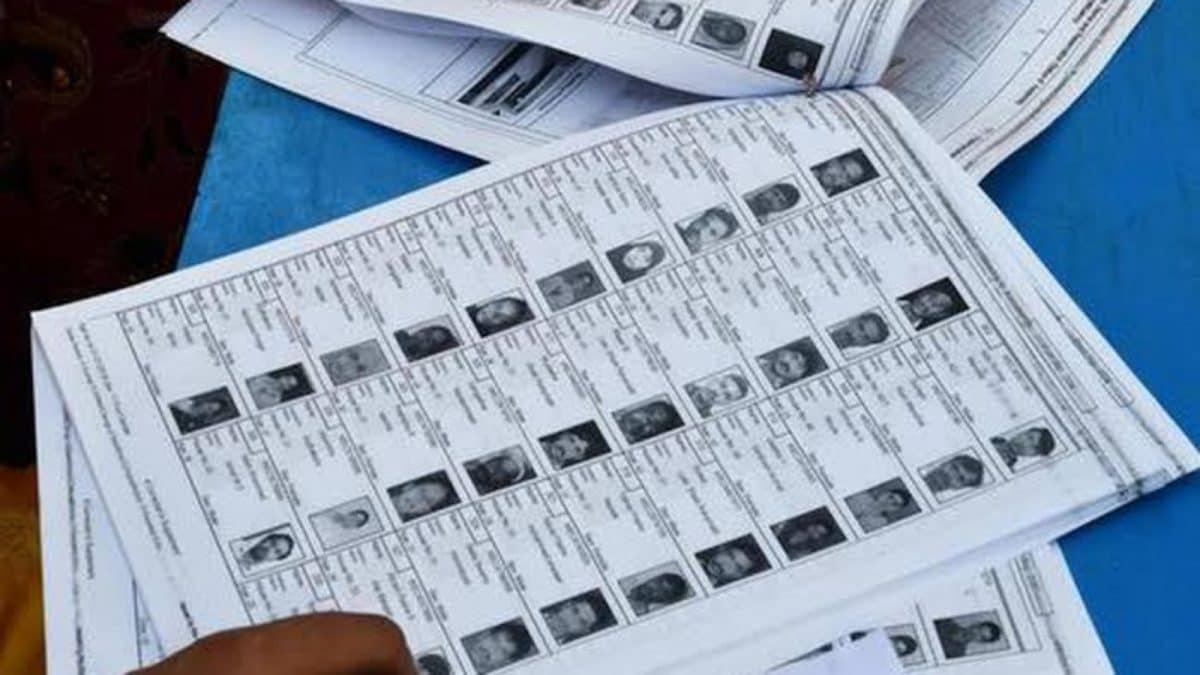Last Updated:
VP Singh, known as Raja Saheb, exposed the Bofors scandal, enforced Mandal Commission OBC reservation, and remains a symbol of anti-corruption and social justice in India

VP Singh’s government collapsed on November 10, 1990, when the BJP withdrew support. (News18 Hindi)
In a political landscape often defined by compromise and caution, Vishwanath Pratap Singh, popularly known as “Raja Saheb’, remains an enduring symbol of conviction. On his 17th death anniversary, the former Prime Minister is remembered not just for the offices he held, but for the storms he dared to walk into. Few Indian leaders have risen to the highest seat of power and simultaneously risked it all by challenging the system itself. VP Singh did both.
Singh passed away on November 27, 2008, yet his decisions, from exposing the Bofors scandal to enforcing the Mandal Commission, continue to influence the country’s political and social fabric. He stands out as the only leader who managed to stop Rajiv Gandhi’s towering popularity and dethrone a Congress powered by a massive mandate.
Today, the twin battles he launched including anti-corruption politics and social justice reform still shape political narratives across the country.
How ‘Raja Saheb’ Was Shaped
Born on June 25, 1931, in the royal estate of Manda near Allahabad (now Prayagraj), VP Singh grew up with the privilege of lineage but chose a life rooted in simplicity and moral rectitude. His political career began in 1969, when he was elected as an MLA on a Congress ticket. By 1971, he had entered Parliament and steadily rose through the party ranks.
His journey from Uttar Pradesh to New Delhi was swift and significant. Singh held several key posts:
- Chief Minister of Uttar Pradesh
- Union Finance Minister
- Union Defence Minister
In Rajiv Gandhi’s cabinet, VP Singh was viewed as one of the most influential voices, until a single overseas radio broadcast triggered one of the biggest political upheavals in Independent India.
The Bofors Scandal
The turning point came in 1987, when Swedish Radio reported alleged kickbacks in the Bofors artillery gun deal. FP Singh seized on the issue, demanding transparency. His confrontation with the Rajiv Gandhi government widened the rift within the Congress.
- He questioned the alleged commissions.
- He pushed for an investigation.
- He ultimately resigned from the cabinet.
Bofors soon became a defining symbol of corruption in public life and played a crucial role in the Congress defeat of 1989. Singh emerged as the face of accountability, a status that propelled him to the office of Prime Minister.
VP Singh took oath as the 7th Prime Minister on December 2, 1989. Though his coalition government lasted less than a year, its decisions left a permanent imprint on the nation. None was more transformative, or polarising, than the implementation of the Mandal Commission recommendations.
The Mandal Movement
On August 7, 1990, VP Singh announced 27% reservation in central government jobs for Other Backward Classes (OBCs). The consequences were far-reaching:
- 27% OBC reservation reshaped government employment.
- Backward-class politics gained unprecedented momentum.
- Universities and streets became protest sites.
- Instances of self-immolation shocked the country.
- Indian politics became permanently polarized along new social lines.
Whether hailed as an architect of social justice or blamed for deepening caste divisions, Singh’s decision changed the trajectory of democracy.
Key Milestones in VP Singh’s Political Career
| Year | Event | Significance |
| 1969 | Elected MLA | Entry into politics |
| 1984-87 | Finance & Defence Minister | National prominence in Congress |
| 1987 | Raised Bofors issue | Became face of anti-corruption |
| 1989 | Became Prime Minister | Coalition era began |
| 1990 | Implemented Mandal Commission | Redefined social justice |
Singh’s government collapsed on November 10, 1990, when the BJP withdrew support. Yet, even after losing office, he refused political bargaining and rejected positions of influence.
Diagnosed with cancer in 1996, he withdrew from active politics, living quietly between Delhi and Allahabad until his death in 2008. As per his wishes, his funeral was conducted without ceremony or ostentation.
Why Raja Saheb’s Legacy Endures
VP Singh is remembered today for two defining qualities:
- The courage to challenge corruption, even within his own government
- The conviction to expand social justice, despite political risks
His legacy remains complex but undeniable. Supporters hail him as a leader who democratised power; critics argue he unleashed caste tensions. Yet all agree on one fact that VP Singh was among the most consequential, and uncompromising, prime ministers the country has ever seen.
November 27, 2025, 14:18 IST
Read More






